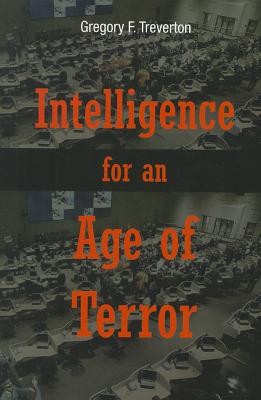
- We will send in 10–14 business days.
- Author: Gregory F Treverton
- Publisher: Cambridge University Press
- ISBN-10: 1107615666
- ISBN-13: 9781107615663
- Format: 16.1 x 22.9 x 1.8 cm, softcover
- Language: English
- SAVE -10% with code: EXTRA
Reviews
Description
During the Cold War, U.S. intelligence was concerned primarily with states; non-state actors like terrorists were secondary. Now the priorities are reversed. And the challenge is enormous. States had an address, and they were hierarchical and bureaucratic. They thus came with some "story." Terrorists do not. States were "over there," but terrorists are there and here. They thus put pressure on intelligence at home, not just abroad. They also force intelligence and law enforcement - the CIA and the FBI - to work together in new ways, and if those 700,000 police officers in the United States are to be the eyes and ears in the fight against terror, new means of sharing not just information but also analysis across the federal system are imperative. The strength of this book is that it underscores the extent of the change and ranges broadly across data collection and analysis, foreign and domestic, as well as presenting the issues of value that arise as new targets require collecting more information at home.
EXTRA 10 % discount with code: EXTRA
The promotion ends in 19d.11:47:13
The discount code is valid when purchasing from 10 €. Discounts do not stack.
- Author: Gregory F Treverton
- Publisher: Cambridge University Press
- ISBN-10: 1107615666
- ISBN-13: 9781107615663
- Format: 16.1 x 22.9 x 1.8 cm, softcover
- Language: English English
During the Cold War, U.S. intelligence was concerned primarily with states; non-state actors like terrorists were secondary. Now the priorities are reversed. And the challenge is enormous. States had an address, and they were hierarchical and bureaucratic. They thus came with some "story." Terrorists do not. States were "over there," but terrorists are there and here. They thus put pressure on intelligence at home, not just abroad. They also force intelligence and law enforcement - the CIA and the FBI - to work together in new ways, and if those 700,000 police officers in the United States are to be the eyes and ears in the fight against terror, new means of sharing not just information but also analysis across the federal system are imperative. The strength of this book is that it underscores the extent of the change and ranges broadly across data collection and analysis, foreign and domestic, as well as presenting the issues of value that arise as new targets require collecting more information at home.


Reviews